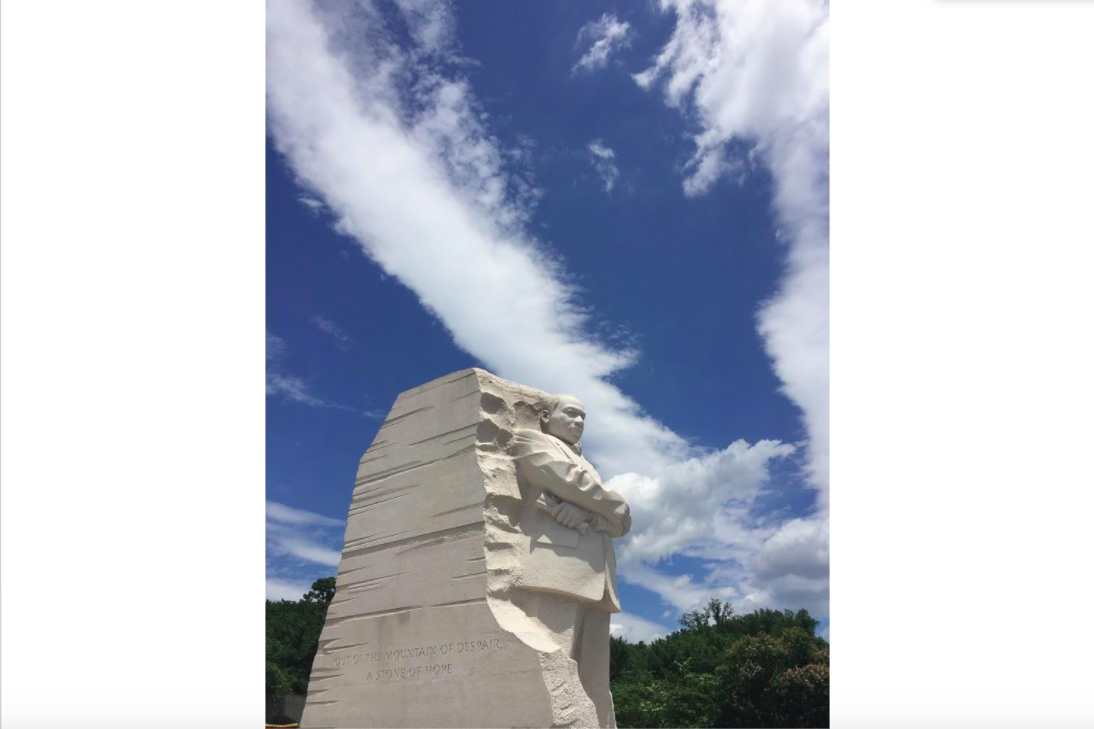In the fifty years since his assassination, the image of Dr. King has, in a lot of ways, been softened to allow for a mainstream embrace of his ideals. It is far easier to quote the line “hate cannot drive out hate, only love can do that” than it is to truly understand what such “love” requires of every American. It is easier to say “I don’t see color” than to wrestle with how American institutions and systems still judge people based on the color of their skin. So today let us take some time to reflect on Dr. King’s words and heed his message as we confront the persistent racism in today’s America.
America finds itself still struggling to realize King’s oft-quoted dream. Though these issues have never fully faded, the presidency of Donald Trump has reignited the fire of racism by refusing to condemn white supremacists. Just this week, Trump confirmed his prejudice when he questioned why America admits immigrants from Haiti and Africa, calling them “sh*thole countries.” At the same time, his administration is threatening voting rights, health care for the poor, criminal justice reform, civil rights in education, and Native Americans’ right to their lands. Not to mention his sympathy for the “very fine” white supremacists who brought violence upon counter protesters in Charlottesville.
In light of these circumstances, what can we learn about civil rights activism from the legacy of Dr. King? As we once again confront overt and covert racism, both individualized and institutionalized, at perhaps the most urgent time since the Civil Rights Movement, we must heed King’s most prevalent message: the necessity of direct action and the danger of silent complicity.
Like the 1960s, the alt-right is supported by the silence of the Republican establishment and moderate institutionalists, the same type of people that King indicted for their inaction in his Letter From a Birmingham Jail. The people who “[are] more devoted to ‘order’ than to justice; who [prefer] a negative peace which is the absence of tension to a positive peace which is the presence of justice.”
The legacy of Dr. King looms so large because he was willing to overthrow the status quo, to push boundaries because he knew it was necessary in order to achieve justice; because order is not always preferable to disorder when order itself is harmful to people. Through civil disobedience and nonviolent protest, King was able to convince mainstream Americans of this in terms of segregation and basic civil rights, but the impulse to stick to order has not been erased.
Consider Colin Kaepernick’s national anthem protests. If you strip away the symbolism for a second, at bottom he is simply saying that he will not stand by while unarmed black people can be killed by police with impunity—223 in 2017.
Most Americans are likely outraged by that fact. But when Kaepernick protests by kneeling during the anthem, challenging the established tradition, people criticize him for being disrespectful and unpatriotic. People become embroiled in that debate and meanwhile his larger message is lost. People are upset by the disorder.
So it also was in 1963 when King wrote his letter exposing white moderate in the South “who constantly says: ‘I agree with you in the goal you seek, but I cannot agree with your methods of direct action’; who paternalistically believes he can set the timetable for another man’s freedom; who lives by a mythical concept of time and who constantly advises the Negro to wait for a ‘more convenient season.’”
Here in Wellesley, we have also been challenged to confront these forces. First because “injustice anywhere is a threat to justice everywhere” — what happens around the country is relevant to each and every American. But also because our own community has been tested. The incident with the swastika in December makes it clear that this new change in American politics affects us as well.
In a speech, Dr. King said “the time is always right to do what is right.” Now is the time, and though the right thing might be hard to do, King reminds us that there is no excuse for inaction.

